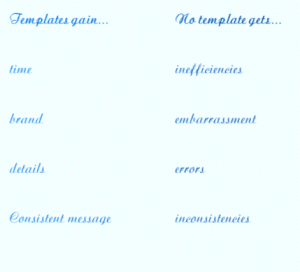Why use a professional writer?
Not many people actually ask me outright, but you can almost see the thought cross their mind – “why would I pay someone to write stuff for me? I know how to write a sentence.”
One very important reason some people choose to hire a writer is simply to save time. It is a task to be outsourced so you can spend more time doing what you’re best at. This is especially true for people who struggle over every word and find writing very time consuming.
Another reason is distance – a professional writer is not so close to your business so will have a clearer perspective of what needs to be said. When you are close to the business, it is easy to get caught in details that aren’t necessary in a marketing document for instance. And when it comes to something like an about us page on a website, many people find it hard to write about themselves anyway.
A professional writer (or editor) may just review what you have done – finding those little errors you can’t easily find in your own work. It is handy if you work alone and don’t have anyone else who can proof read for you.
Of course, a major reason for using a professional writer is to get words that work well, are easy to read and are grammatically correct. For some people this is easy to achieve, others have to work hard at it and some people just can’t get it no matter what they do. Even if you can write fairly well, if you aren’t experienced at writing in a certain way it may be worth getting a professional to do it for you. You can always use their work as a model for future projects.
I think of it this way – I can hold a pencil or paint brush and make marks on a page but I would pay someone else to actually paint something to hang on my walls. We all have our talents and I’d prefer to outsource to experts than try to find time to do everything myself. Which of course leaves me with more time for writing…


 Writing a complete list can be tedious, so we tend to write out part of a list as a sample instead. Implying it is a sample even when we think we have written out the entire list, can also be useful – it protects you from giving an absolute.
Writing a complete list can be tedious, so we tend to write out part of a list as a sample instead. Implying it is a sample even when we think we have written out the entire list, can also be useful – it protects you from giving an absolute.
Recent Comments